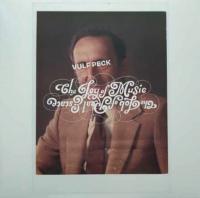I think the model of pressing records specifically for sale is ludicrous. There's a reason that most industries have stock in warehouses; it makes sure that people aren't dealing with specifically what happened to you: a wait that takes the better part of a year!
I understand that it removes some risk from the artist's standpoint by allowing them to not have to have their money tied up in a thousand records sitting in a warehouse, but really they aren't perishable if stored properly, are they? Press for demand, and press more reactively.





